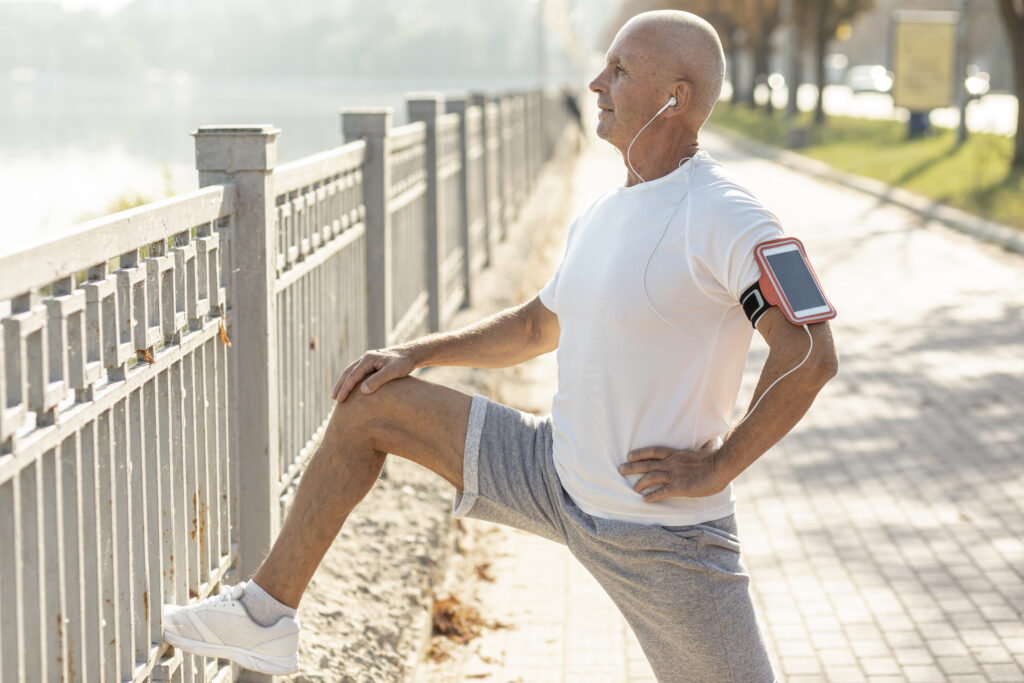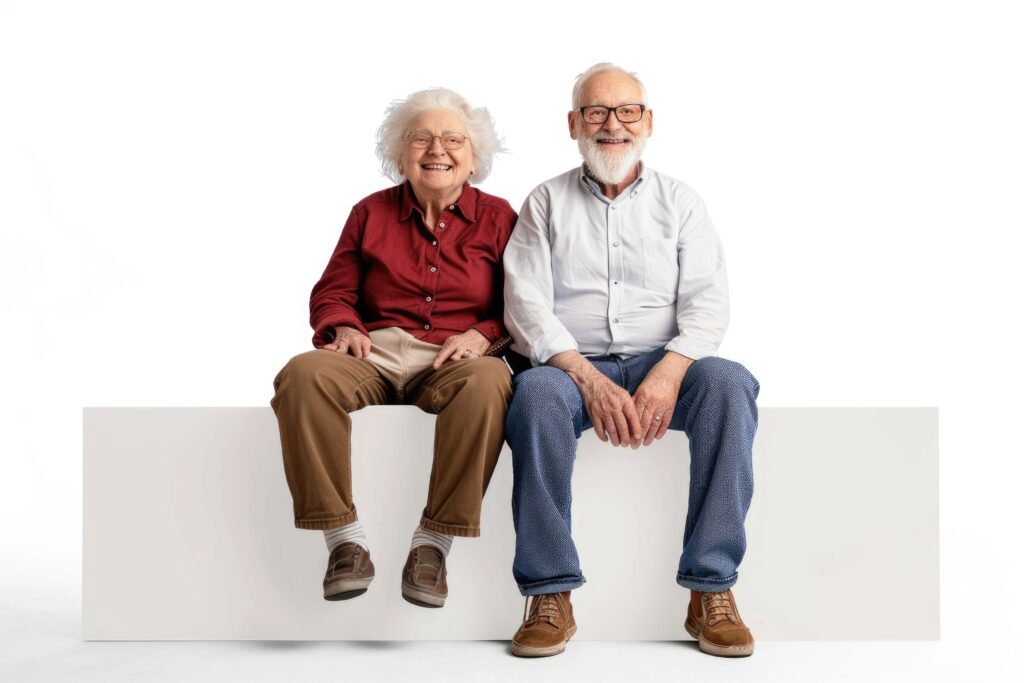Movement is
Medicine
We bill most insurance companies directly for all our services.








What would your day feel like if you weren’t in pain?
Imagine the possibilities.
You could keep up with your kids or grandkids. Run that race you’ve been dreaming of. Or maybe just get back to being physical again.
See, we’re here to do more than help you heal. We’re here to stop pain from holding you back.
ABOUT US
At New Life Physio and Health Clinic, we envision a world where every individual is empowered to live their life to the fullest, free from pain and limitations.
Our mission is to provide exceptional physiotherapy and health services that transform lives. With a focus on tailored exercise programs, cutting-edge modalities, and evidence-based practices, we aim to optimize function, alleviate pain, and enhance overall quality of life for our patients.
Guided by our core belief that “MOVEMENT IS MEDICINE,” we empower individuals to overcome challenges, regain independence, and thrive in their journey towards holistic wellness.
With unwavering dedication, we inspire our community to embrace movement as a fundamental pillar of well-being.
Trustindex verifies that the original source of the review is Google. I highly recommend New Life Physio to anyone dealing with pain or mobility issues. Dr. Sobhani and his team are knowledgeable, experienced and caring. They take the time to listen to the problem, explain the causes and develop a realistic treatment plan that actually works. If you are looking for skilled professionals, friendly staff and a clean and welcoming clinic, this is the place to go!Trustindex verifies that the original source of the review is Google. Sobhan has helped me recover from 2+ years of injuries. I am actively getting better and his knowledge and body manipulation techniques continue to impress me. If you are looking for a quality physiotherapist who has the right mindset, techniques and tools - this is your guy.Trustindex verifies that the original source of the review is Google. I had such a great experience at New Life Physio! I had a chronic pain in my hip and back. Dr. Sobhan helped me overcome this pain and worked with me to improve my posture and strength. He’s incredibly skilled and caring, and the whole staff is just as professional and supportive. I highly recommend them!Trustindex verifies that the original source of the review is Google. The customer service is amazing, they truly know how to treat patients well. All the staff I've encountered have been nothing but caring. Ever since I started my physio (with Ben) I've seen a huge improvement. Despite needing a lot of attention, Ben has been able to provide me with all the help I've needed. As for the massage with Rania, she truly knows how to attend to patients properly. She's very attentive and helpful when it comes to needing help. If anyone is looking for a clinic, I highly suggest visiting this place as they've helped me more than I could've ever imagined. Thank you to all the wonderful staff that has been able to help me throughout my journey.Trustindex verifies that the original source of the review is Google. Ben is a great physiotherapist that has been helping me with shoulder, neck and back pain. The team at Newlife are very supportive and kind.Trustindex verifies that the original source of the review is Google. I’ve had a really great experience at this physiotherapy clinic. From the very beginning, the team made me feel welcomed and cared for. Dr. Ben has been especially amazing — he took time to understand my pain, explained things clearly, and was always patient and supportive. Thanks to his treatment, I’ve felt real relief and improvement. I’m truly grateful for the care I’ve received and would definitely recommend this clinic to anyone looking for kind and professional physiotherapy support.Trustindex verifies that the original source of the review is Google. I’ve been working with Physiotherapist Ben Lahouti for the past month, it’s been a game changer for my recovery. The combo of physical rehab and his explanations behind it has given me the clarity and support to help get me back to my sport. The whole team, especially the reception is incredibly welcoming and friendly. Definitely recommend.Trustindex verifies that the original source of the review is Google. Sobi is an amazing physiotherapist. He knows when I need that mental push to get through my barriers. I've gone from using a walker all the time to no longer needing the walker in just about 2 months. He takes the time to fully assess your needs and goals and also to reassess. Do your homework and along with clinic visits you will definitely see improvement.
BLOG

Walking or Running Doesn’t Hurt Your Knees – It Might Help!
If you’ve been avoiding walking or running because of knee pain or arthritis, here’s some good news: moving more might actually help your knees—not hurt them. New research from 2025 shows that both walking and running can be safe—and even beneficial—for people with knee osteoarthritis (OA). One large study, in particular, offers strong evidence that regular walking can reduce pain and slow joint damage. 🚶 Walking: A Simple Step Toward Healthier Knees One of the most important studies in 2025 on knee OA came from a team of researchers publishing in the Annals of Internal Medicine. They followed over 1,200 adults aged 50 and older who had signs of knee OA but no frequent knee pain at the start. 📌 Key findings from this large study: 👉 In short: walking regularly lowered both the chance of knee pain and the risk of arthritis getting worse. Even light walking, spread throughout

Did You Know? Your Ability to Get Off the Floor Can Impact Longevity!
As we age, maintaining our health and independence becomes increasingly important. One surprising factor that plays a crucial role in this is your ability to get off the floor. Research has shown that the simple act of sitting and rising can provide valuable insights into your overall health and even predict longevity. What is the Sitting-Rising Test (SRT)? The Sitting-Rising Test (SRT) is an easy, no-equipment way to assess how well you can sit down and get back up. These movements may seem basic, but they are essential for everyday activities and maintaining your independence. If you find it challenging to perform these actions, it could indicate a higher risk of falls—a significant concern as we age. Why is the SRT Important? How Physiotherapy Can Help Physiotherapy plays a key role in improving flexibility, strength, and coordination as we age. Here’s how: Conclusion The Sitting-Rising Test is more than just
BLOG

Walking or Running Doesn’t Hurt Your Knees – It Might Help!
If you’ve been avoiding walking or running because of knee pain or arthritis, here’s some good news: moving more might actually help your knees—not hurt them. New research from 2025 shows that both walking and running can be safe—and even beneficial—for people with knee osteoarthritis (OA). One large study, in particular, offers strong evidence that regular walking can reduce pain and slow joint damage. 🚶 Walking: A Simple Step Toward Healthier Knees One of the most important studies in 2025 on knee OA came from a team of researchers publishing in the Annals of Internal Medicine. They followed over 1,200 adults aged 50 and older who had signs of knee OA but no frequent knee pain at the start. 📌 Key findings from this large study: 👉 In short: walking regularly lowered both the chance of knee pain and the risk of arthritis getting worse. Even light walking, spread throughout
Are You Struggling with Plantar Fasciitis? Discover a Game-Changer in Pain Relief!
If the first steps of your day are greeted by sharp, stabbing pain in your heel, you might be among the millions grappling with plantar fasciitis. This common, yet debilitating condition can turn every step into a challenge, impacting your daily activities and overall quality of life. But there’s good news on the horizon! The latest clinical practice guidelines from Koc Jr et al. in the Journal of Orthopaedic & Sports Physical Therapy highlight a recommended treatment for plantar fasciitis: Low-Level Laser Therapy (LLLT). Why LLLT Could Be Your Path to Relief: Low-Level Laser Therapy has been recommended as part of a rehabilitation program for both acute and chronic plantar fasciitis to decrease pain in the short term. LLLT stands out by using targeted laser beams to stimulate your body’s natural healing processes, offering relief from the debilitating pain associated with plantar fasciitis. It’s non-invasive, fast, and has shown promising
